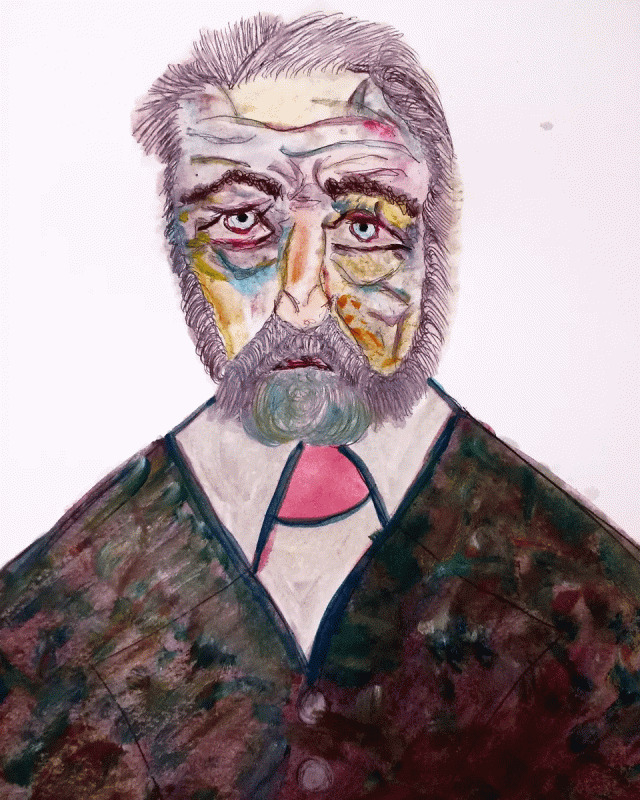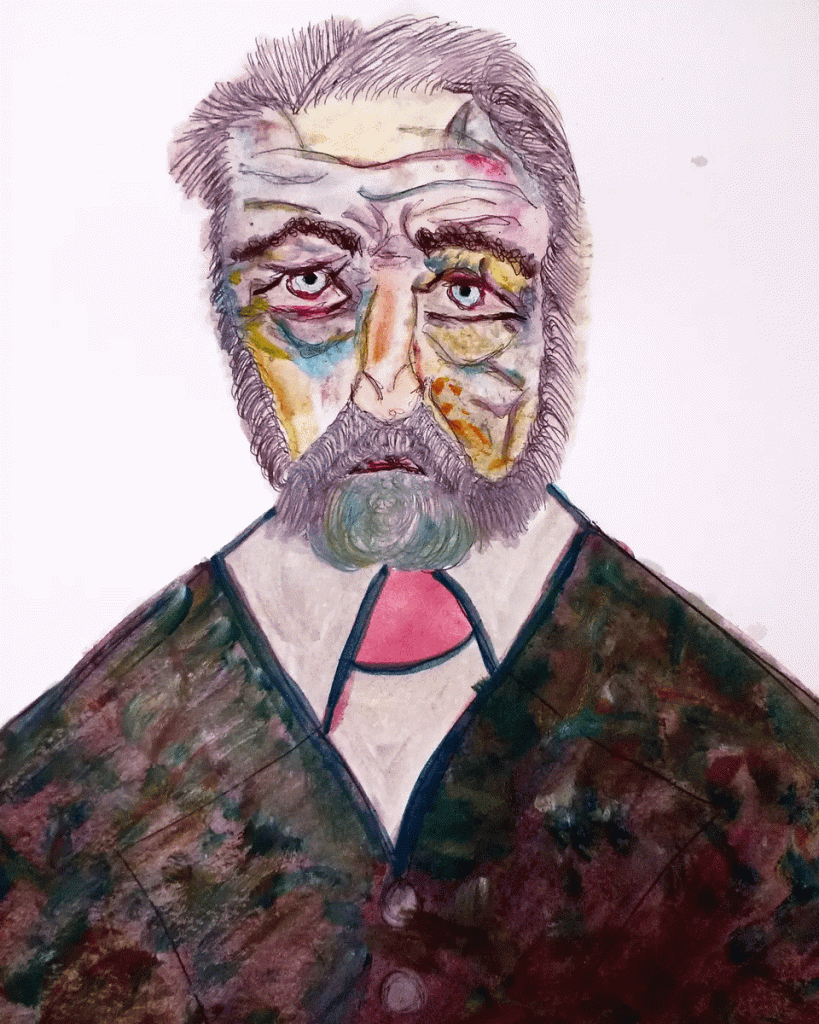“There she is. That’s her. That’s your daughter, right there!”
The mother’s keys jingled in her daughter’s face, who was sitting on the floor in the corner next to the umbrellas, to point her out to him. The mother rushed through the front door, hissing that she had to go to work, as she had already left the house.
The man who came back as her husband stood in this quiet hallway and felt misplaced. His house didn’t recognise him. He felt as if he couldn’t stay, it was too quiet. He didn’t want to hear himself think. Then he remembered the crouched girl in the corner of his eye. And she looked recognisable. The war had raised her behind his back.
“Are you taking me with you now?”
Her voice sounded strained, as if her body was older on the inside, older than she looked, a child, an old child, nevertheless. She said it in a way as if she had known him all her life, as if he had existed beside her for the past few years that changed the world.
“No, I’m staying here now, little dove.”
She looked disappointed. She looked at him as if she couldn’t see everything that hurt him and it made him feel new, as if he could live once more. She studied her father and he came back under his skin.
“She braided my hair too tight. It hurts my scalp.”
She stood in front of him now and he put his fingers into her braids to loosen them without destroying them.
“What are you doing? They are perfect and she likes them like that. She gets angry if I don’t accept the pain.”
“I thought you were asking me for help.”
“Yes, I did, big dove.”
In the afternoon, when the sun started to sink slowly, his daughter was playing alone in the front garden whilst a group of children were playing hide-and-seek around a vandalised old grocery shop. He reacquainted himself with the house he had abandoned. It had forgotten all about him and it had shed the skin that he had been recalling to anchor himself and to hold on to hope, to a return, to a roof over his head. A replacement had taken place whilst he might have been dead or dying or fighting. The house had come back to fullness amidst the war, but the missing pieces weren’t there right now. But he could smell their existence within his house, his inheritance.
He revisited their bedroom. His eyes went to his wife’s bed first. He hadn’t slept in it for so long, it didn’t feel right to say that it was his too right now. He didn’t know what dreams she had had these past few years and with whom she had shared them if not with him. The bed had been made with the same regimental tightness as his daughter’s braids that hurt her scalp. No wrinkles, no tell-all. He wanted to skin the bed to see what was underneath, what it hadn’t been hiding whilst he was away. He felt mocked by an object that didn’t seem inanimate to him. In bad faith, he had been pronounced dead in this room where he had been his most vulnerable self.
He moved over to the open wardrobe. Her clothes, lively, colourful, fresh, worn, hanging past the middle, then an abyss and then there were his clothes, squeezed tightly into the corner, against the wall, giving up as much space as possible, with a heavy layer of dust setting on the shoulders of his clothes like heaps of dirt. He had become that invisible man with the life squeezed right out of him, a ghost hanging in her closet, buried in the trenches of her mind, neglected to observe what she had done with her life when he left.
He stared at his face that appeared next to mothballs dangling on the mirror on one of the wardrobe doors. He wondered what he got in exchange for his life. For what exactly did he give up his place? What did he get in return? His losses accumulated in his face. He felt homeless in a world that had survived. Was he not supposed to come back alive? Was he supposed to find everything in ruins? What was the point? Where could he possibly find the rewards? How much could he get for the blood on his hands?
A boy, who had been conceived in this room in his absence, appeared in the mirror image and cried immediately upon seeing this unknown man. The boy screeched and didn’t stop. The man turned around and found himself on his knees to calm the boy down, to stop the noise, to stop his ears from ringing, to erase this feeling of betrayal and exploitation, this sense of not having mattered at all, as if neither his life nor his death had made a difference in the world, in this house.
The daughter rushed into the room. Her hair, loose. The same colour as her father’s. The house was quiet again. Too quiet. But the father’s hands kept holding on tightly to her brother’s voiceless throat as if he could save himself.


What soulful/sorrowful eyes that man has
LikeLiked by 2 people
The eyes definitely turned out to be my favourite part of his face.
LikeLiked by 2 people